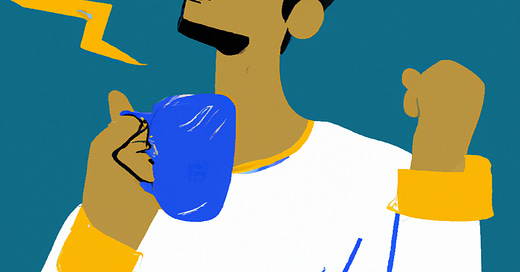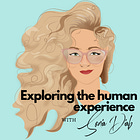As a society, we seem to be slowly moving away from the rhetoric of hustle culture. There’s more acknowledgement now that going too hard for too long will typically result in a best case of diminishing returns and a worst case of physical and mental burnout.
At the same time, of course, even if there is a rising collective awareness of the problems of overwork, this awareness sits in the context of a “forever switched on” market that is more globalised, uncertain, and rapidly evolving than ever. It’s an environment that naturally drives expectations of more accessibility and attention.
Also arguably relevant is that we live in a time that’s more embracing of the concept of choosing your own path. People (see especially: those with ovaries) are often less closely-bound by particular social prototypes now; they can choose to have the career and the family and the business and the fulfilling creative hobbies and the personal development courses… and so on. This is wonderful in principle and very important, but also comes with its own systemic baggage. In practice for some, feeling like there are not only options but perhaps social expectations to now maintain and achieve so many different hats could arguably result in a cycle of overload, overwhelm, and guilt. When writing this edition, I came across an insightful Energx report on Australia’s female human energy crisis. Based on a survey of over 1000 professional Aussie women, a whopping 74% met the risk profile for experiencing overwhelm, 64% for waking up tired, and 56% for stress and work-life balance; and this is just me plucking out three of seven listed Energy Crisis Indicators (ECIs). (Perhaps more on this in a later piece…)
I’ll be the first to emphatically agree that issues of wellbeing and burnout are pervasively framed as individualised problems despite being driven largely by systemic forces. To elevate wellbeing and help people perform to their best in a sustainable way, there is a broader need to disrupt cultures of overwork and presenteeism and giving more and more for less and less.
But while we’re collectively nudging at a much bigger, wicked problem, we can also, as individuals, implement more intentional processes to serve our wellbeing. In many cases, tactics that support our wellbeing bring an added bonus of elevating performance, too. One such strategy is the humble micro-break.
The power of micro-breaks
A 2022 meta-analysis of 22 studies found that ‘micro-breaks’ — that is, intermittent periods of rest from a task, lasting fewer than 10 minutes — are an effective way of recovering from fatigue, replenishing energy, and elevating focus. In fact, the data is so compelling that the researchers go as far as suggesting “that micro-breaks may be a panacea for fostering well-being during worktime”.
The study found that micro-breaks are also particularly helpful to subsequent performance when the task is quite routine or requires some creative thinking.
When the cognitive demand of a task increases, though, the data on micro-breaks is a little murkier. We need more research on optimising break durations, but generally, micro-breaks don’t appear to be enough to prompt elevated task performance for tough jobs. When tackling more challenging cognitive work, the researchers suggest that fewer than 10 minutes away might bring back some pep and stamina, but we may need additional time to fully refill the brain-cup.
However, even if a micro-break won’t aid performance for a really hard task, the data holistically suggested that it won’t hurt performance, either. And, it’s possible you’ll still feel better and more productive — So, if a longer break isn’t possible, a micro-break is still worth a go!
There are lots of nuances to the research on breaks, and more investigation is needed, but overall, the message of extant studies seems quite clear:
Little breaks make a big difference.
A small, meaningful action: Implement conscious micro-breaks and longer breaks throughout the day
KitKat was right. To rejuvenate your energy levels and feel more productive and focused, try consciously implementing micro-breaks of 1-10 minutes throughout your work day. (It might take a little experimentation to find a duration that feels good for you.) And, if you’re working on a task of the especially-brain-frying variety, plan some longer breaks to help you come back with fresh eyes and fresher thinking.
According to some research, the restorative power of a micro-break might not even need a whole minute to start kicking in. At uni, I typically run online lectures of about an hour and 15 minutes in duration, so this semester, I’m going to start implementing quick 2-4-minute micro-breaks in the middle. I’m curious to see if this protocol enhances the student experience.
How might you experiment with micro-breaks? What do your current practices look like? Let me know in the comments or reply to this email.
A quote
Drink your tea slowly and reverently, as if it is the axis on which the whole earth revolves — slowly, evenly, without rushing toward the future. Live the actual moment. Only this moment is life.
- Thich Nhat Hanh
A recommendation
Another January read for me was Hidden Potential: The latest book from organisational psychologist Adam Grant. Adam Grant can always be relied on for an engaging learning experience that’s also an easy read. From learning by teaching to taking breaks, deliberate play and harmonious passion, Grant walks through a series of evidence-based practices and approaches to bring out our hidden potential.
In case you missed it…
As a new way of connecting, I’ve started doing some audio readings of prior newsletters. These may or may not evolve into some other audio/podcasty things this year; we will see, but I’m quite keen to come back to more audio in 2024 (it’s been a while!). Check them out below (or you can listen on Spotify or listen on Apple Podcasts):
Thanks so much for reading my newsletter!
Have an aspect of the human experience you’d like to explore in more depth? Have any other thoughts, questions or comments? Reply to this email and let me know.
Enjoy this post? It would mean a lot to me if you shared it with someone who may also find it valuable or interesting.
Someone send you this? Subscribe now to get the next one directly to your inbox. Subscriptions are free.
Any views expressed in this newsletter are my own and are not affiliated with any other institution, entity or person. Also, these newsletters contain generalised ideas and none of this material constitutes professional or specific advice of any kind.





![[002] Is it time to revisit your New Year's resolution? (Audio Reading)](https://substackcdn.com/image/fetch/$s_!9_1s!,w_140,h_140,c_fill,f_auto,q_auto:good,fl_progressive:steep,g_auto/https%3A%2F%2Fsubstack-post-media.s3.amazonaws.com%2Fpublic%2Fimages%2F6d1de778-e12c-4daf-babe-ecbdce1c08fd_1485x1485.png)
